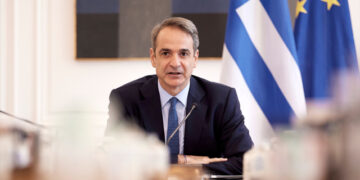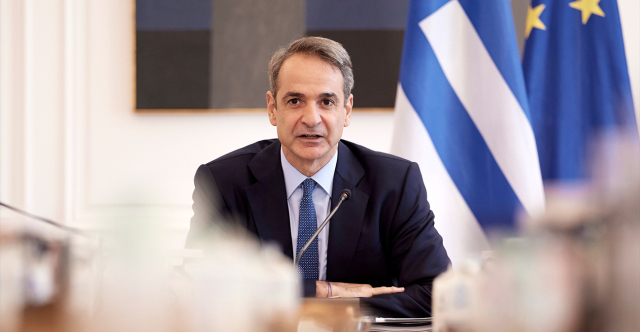As summer approaches—a season the government hopes to keep free from unrest—the Maximos Mansion is operating from a position of political strength. The latest rolling polls indicate that New Democracy remains around the 30% mark.
To avoid politically damaging scenarios, the government is proactively tackling citizens’ concerns, aiming to set the national agenda and alleviate pressure from opposition parties.
Meeting with University Rectors on Security
At noon today, Prime Minister Kyriakos Mitsotakis will meet with university rectors at the Maximos Mansion, with campus safety as a primary focus. Government officials emphasize the need for university administrations to draft and update mandatory safety plans, as currently only one-third of institutions have completed this requirement.
Additionally, swift disciplinary actions are anticipated for students involved in assaults against staff or vandalism of facilities. The aim is to streamline procedures and eliminate delays.
During last month’s rectors’ conference, Education Minister Sofia Zacharaki introduced key government proposals:
- Each university must establish a unified disciplinary council to address incidents promptly and resolve matters within two months.
- Students facing criminal charges for violence or major damage will automatically lose their student status for two years, with a conviction leading to permanent expulsion.
- Access to university premises will be strictly regulated through student ID systems.
- Students found responsible for damaging public university property will be held financially liable for repairs.
Social Initiatives and Public Engagement
Beyond university matters, Mitsotakis is set to launch a new platform on Tuesday with Minister of Social Cohesion and Family Domna Michailidou, aimed at consolidating government housing interventions.
This Thursday, he will visit Volos, followed by a trip to one of the new Disability Certification Centers (KEPA) on Friday.
Foreign Affairs and Domestic Pressures
Simultaneously, Mitsotakis is addressing crises both domestically and internationally. A pressing issue has arisen from an Egyptian appellate court ruling regarding the legal status of the Monastery of Saint Catherine in Sinai. A Greek delegation led by Foreign Minister Giorgos Gerapetritis and Religious Affairs Secretary General Giorgos Kalantzis will travel to Cairo on Wednesday to seek a resolution—through either an appeal of the court decision or an intergovernmental agreement.
Tempi Inquiry and Political Implications
At home, the government must contend with the sensitive case involving former Transport Minister Kostas Karamanlis and the upcoming preliminary investigation (Pre-Investigation Committee) related to the tragic Tempi train disaster.
While ND opposes PASOK’s push for felony charges against Karamanlis, it is encouraging opposition parties to support its own proposal to ensure the former minister faces judicial review.
Internally, the government is aware that some ND MPs may express skepticism during the upcoming secret vote. Karamanlis has been in communication with fellow MPs and is expected to address Parliament, reiterating his request to be evaluated by the judicial council in line with ND’s “Triantopoulos model.”
OPEKEPE Reorganization
Finally, regarding the Greek Payment Authority (OPEKEPE), Mitsotakis is committed to his “shock therapy” strategy: dissolving the agency and transferring its responsibilities to the Independent Authority for Public Revenue (AADE). Government insiders are dismissive of the idea of a parliamentary inquiry, citing that political figures merely oversaw OPEKEPE’s operations and weren’t involved in daily decision-making, despite leadership changes.
Ask Me Anything
Explore Related Questions

















